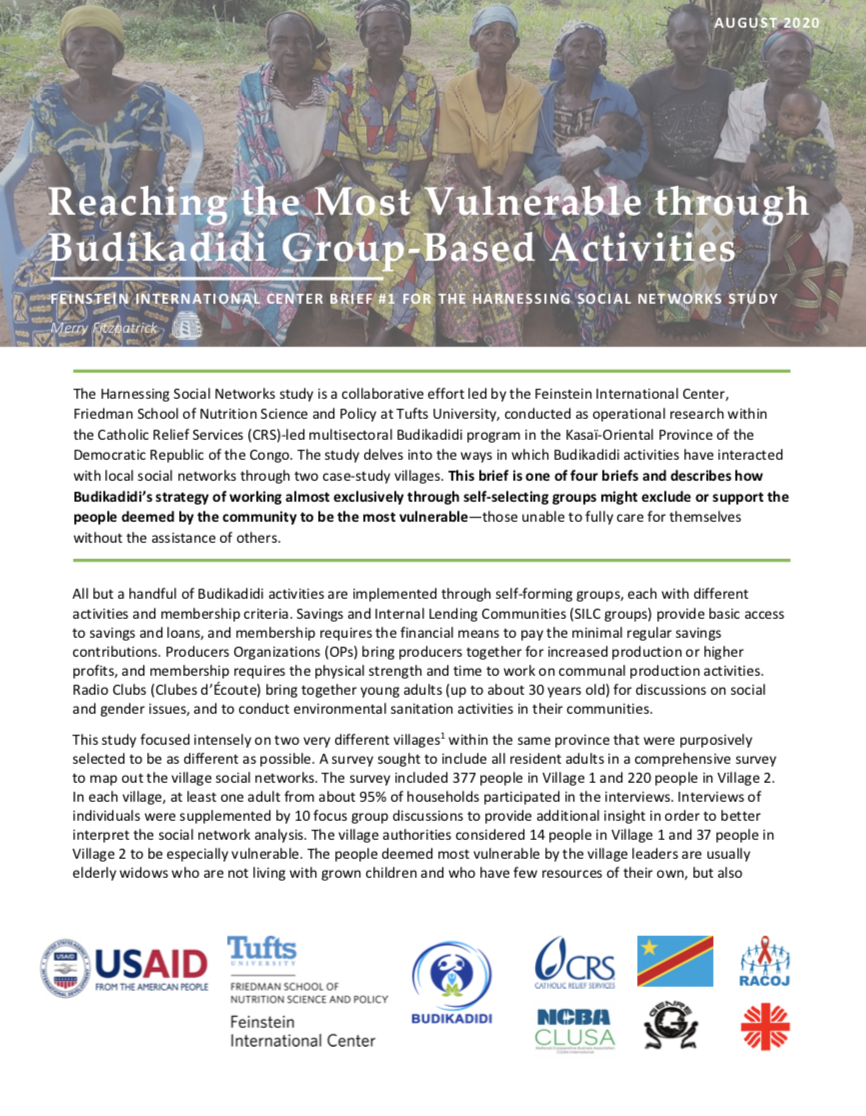The most vulnerable people in a rural village are not often able to benefit from group activities. Physical, social, or financial limitations keep them from equally participating in or contributing to group activities. When groups are self-selecting, the most vulnerable are less able to compete for limited membership, and the final group composition is likely to be less supportive of the most vulnerable. In villages with weak formal governance, high competition for membership, and no groups designed specifically to meet the needs and capacities of the most vulnerable, the Budikadidi program struggled to reach the most vulnerable people through mainstream activities. However, when the program created groups specifically adapted to the unique needs and limitations of the most vulnerable, these people were able to participate and benefit from the program. Further, the increased social connectivity within the group provided a sustainable social safety net that benefited the participants as much as the program activities themselves.
Reaching the Most Vulnerable through Budikadidi Group-Based Activities

August 2020
ASSOCIATED PROJECT
SUBJECTS
PUBLICATION TYPE
LOCATION
RELATED PUBLICATIONS
This desk study explores how state-owned policies and programs in pastoral areas of the Sudano-Sahel and the Greater Horn of Africa meet pastoralists’ needs and priorities.
•
October 2024
This report outlines an anticipatory insurance product designed to support farmers in the drought-prone regions of Malawi and Zambia.
•
August 2024
The time pressure involved in designing and implementing anticipatory action can discourage the localization of decision-making. Learn more from a cartoon-infused summary of insights.
•
July 2024
Early Warning Systems can reduce deaths and damages caused by extreme weather events, if investors address gaps in communication and planning. Learn more from a cartoon-infused summary of insights.
•
July 2024
This synthesis report reflects upon Phase 1 findings on humanitarian action in pastoral drylands of the Greater Horn and Sudano-Sahel.
•
June 2024
This desk study examines common perceptions of pastoralism among humanitarians and barriers to international humanitarian systems meeting pastoralists’ needs.
•
June 2024






